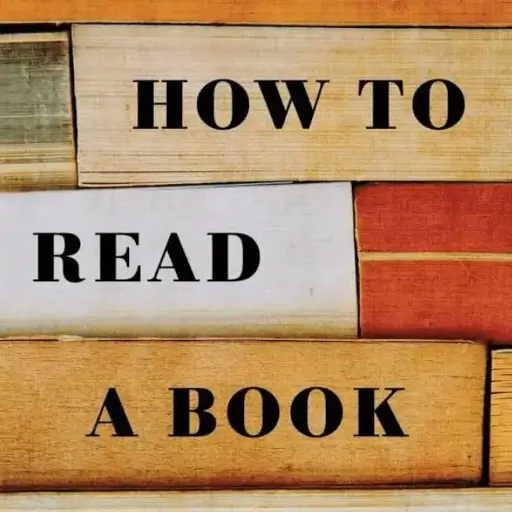How to Read a Book

I would recommend this book to anyone who endeavors to be a lifelong learner. I also recommend that you read it ASAP if you are interested in it, as it will change the way you approach everything thereafter. I'm upset that this wasn't a part of my high school curriculum.
Despite the absurd title, the book's core is rather worthwhile, though it could use a thorough editing to bring it well under 150 pages. The text is overly verbose and far too repetitive to fill out 350 pages comfortably. Even its entire first 3 chapters can be completely skipped. (He thinks that the "lowest level of reading" is comprehension. That's it. I saved you ~45 pages of posturing.)
At his worst Adler is pretentious, pompous, and belittling. He makes no attempt, for example, to understand why one would read an important book before bed unless one was a moron, and he then goes on to insist that he's better at reading himself to sleep than you are. Pointless little oddities like this mar the text and keep it from being the sort of book you could recommend to anyone.
But at its best, HtRaB offers an insightful suggestion about how to thoroughly glean the meatiest parts of a serious book and how to categorize it in your mind for future reference should the need arise to read the work in full. It is well-tailored to a research project where you have hundreds of potential works to pull from but limited time for sifting. The method works well for chewing through books beyond this context as well.
I believe this book has shaped the way I shop permanently. I am the sort of person who amasses too many paperbacks just in case I want to read them someday, but I now feel that I will peruse a digital copy when able to first determine whether or not I even feel compelled to give the text a more thorough read. I also feel strongly motivated to "systematically skim" (as he puts it) my entire back catalog of 70-odd books I have not yet opened. Indeed I feel a bit foolish for having bought so many when I know that, statistically, at least 25% will reveal themselves after a half-hour skim to not be worth reading in full.
It's important to note that the book is from 1940, a time when self-publishing was an extreme rarity and published books had a high quality bar, so being a book just by itself was generally an indicator of quality. Adler's note-taking techniques, even in the 1972 update, predate computing. Some of his advice about reading or focusing on various parts of books like the dust jacket also does not translate well to the 2020s. The process is ripe for modernization.
Highlights
- Utility: Piece of junk changed the way I read forever.
- Quick Rundown: Read chapters 4 and 5 of this book, then apply them to the book itself. Read chapter 20 before you put the book down. You're welcome.
- Bonus: The included reading list, available on the wiki page, is among the greatest of all time.